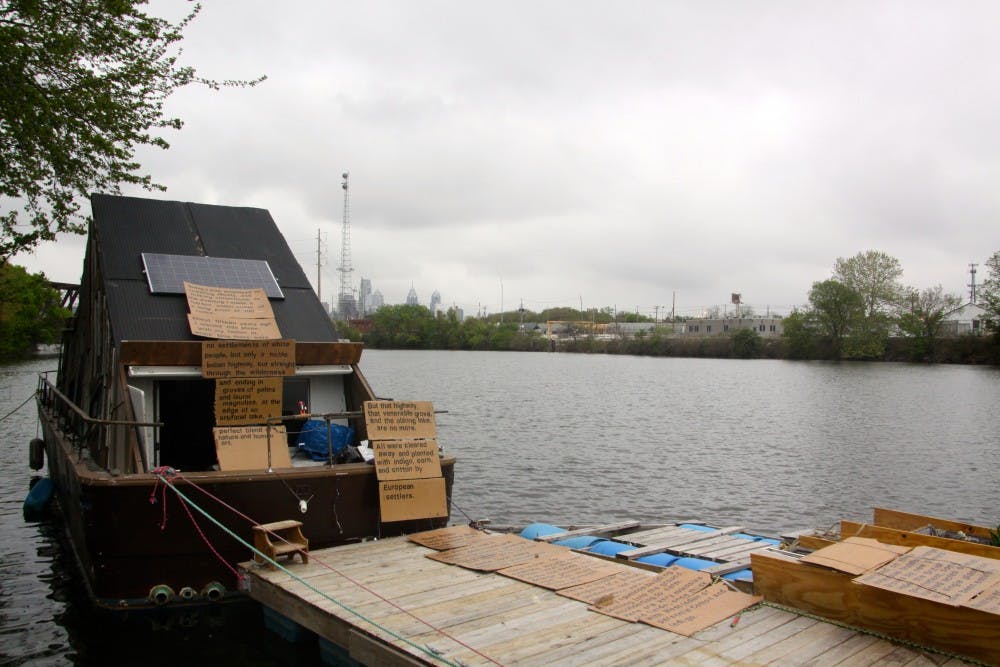A misshapen, angular structure rises out of the Schuylkill outside of Bartram’s Garden like a type of camouflaged sea monster. It contains a rainwater collection system, solar panels, floating gardens around its perimeter and a beehive. WetLand is both a houseboat and artwork that looks to ask questions of the future: What will housing look like as Earth’s climate continues to change? How can we change our ways of life to be more sustainable? WetLand was brought to Bartram’s Garden through Penn’s Program for Environmental Humanities (PPEH), and the program in general seeks to raise similar questions.
WetLand was created by Mary Mattingly, the first Artist–in–Residence with PPEH. For Tabeen Hossain (C ’17), an undergraduate fellow with the program, it serves as “an event space that gets people interested in looking.” It gets people looking not only at the physical art form, but also at the underlying concepts of sustainability, utopia and environmental degradation that it represents. PPEH as a whole hopes to garner interest in the current period of environmental turmoil, to retell the story of climate change in new and engaging ways. “That’s the wing of the program that engages with the community,” Tabeen says in reference to the Artist–in–Residence program, citing its effectiveness in making the theory and academic discourse surrounding the Environmental Humanities accessible.
This year, three artists are collaborating as a part of the residency: the composer Troy Herion, whose work combines music with visual arts; the set designer Mimi Lien who received a 2015 MacArthur Genius Grant and the Philadelphia–based director Dan Rothenberg. Together, they will continue the development of A Period of Animate Existence, a music–theatre hybrid that, according to PPEH’s site, “presents a series of meditations on planetary cycles and life cycles, set in a time of dire ecological predictions and rapid technological change.” As with WetLand, the production asks viewers to question how climate change affects and will continue to affect how humanity interacts with the Earth.
The manifesto of Penn’s Program for Environmental Humanities asserts: “We seek to shape the new normal by cultivating curiosity, exploring emotion, and igniting innovation.” Through its Artist–in–Residence program, and through other initiatives like DataRefuge, which works to identify and preserve federal climate and environmental data, PPEH is certainly on the leading edge of creating a more creative and environmentally–aware future.

